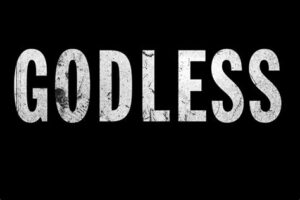The Description of Apostates
Jude 8-16
Jude now begins a detailed description of the apostates, whose deadly work he has revealed. They are the Adversary’s own personal agents within the believing body. However subtle, shrewd, cunning or clever they are, Jude reveals their true character, and gives us a complete record of their spiritual condition and their end. The righteous of the TaNaKh must be on their guard, spiritually alert, alive and awake.51 What were their beliefs and what was their way of life? From Jude we can conclude three things about these heretics.
First, they were antinomians, or people who believed that the moral law did not apply to them. Antinomians (to see link click Ac – The Book of Jude From a Jewish Perspective: Purpose) have existed in every age of the Church. They are people who prevent grace. Their position is that the Torah is dead and they are under grace. The Torah reveals the standard of righteousness demanded by God. They think it may apply to other people, but it no longer applies to them. They can do absolutely whatever they like and no repentance is necessary. Grace is supreme. It can forgive any sin. In fact, the greater the sin, the more opportunities for grace to increase (Romans 6). They believe that the body is of no importance, what matters is the inward heart. All things belong to the Messiah, and, therefore, all things are theirs. And so, for them, nothing is forbidden.
Jude’s apostates turn the grace of God into a license for immorality (Jude 4); they indulge in shameless unnatural conduct by going after strange flesh as did the men of Sodom and Gomorrah. They pollute their own bodies and do not consider it to be a sin (Jude 7-8). They allow animal instincts to rule their lives (Jude 10). With their sensual ways, they are likely to wreck the love feasts of local messianic synagogues or churches (Jude 12), and it is by their own evil desires that they direct their lives (Jude 16).

Second, they denied the deity and uniqueness of Jesus Christ. They are godless people, who pervert the grace of our God into a license for immorality and deny Yeshua Messiah our only Master and Lord (Jude 4b). As so often in the New Covenant, we again encounter what became known as Gnosticism (see Ac – The Book of Jude From a Jewish Perspective: Purpose). So, the apostates whom Jude attacks were people who denied the oneness of the LORD and split Him into an ignorant creating God and a truly spiritual God. They denied the uniqueness of Jesus Christ and saw Him as only one of the links between God and human beings, and they created class distinctions with the body of believers and limited fellowship with ADONAI to a supposedly intellectual few who were on a higher spiritual plane than everyone else.
Third, they denied and insulted ADONAI’s holy angels. It is said that they reject authority and slander celestial beings (Jude 8). The words authority and celestial beings describe the ranks in the Jewish hierarchy of angels. Regarding the death and burial of Moses, if Michael, the archangel, on such an occasion said nothing against the prince of evil angels, clearly no one can speak evil of the angels.
The Jewish belief in angels was very elaborate. Every nation had a protecting angel. Every person, every child, had an angel. All the forces of nature, the wind and the sea and fire and all the others were supposedly under the control of angels. It could even be said that every blade of grass has its angel. Clearly, the false teachers attacked the angels. It is likely that they said that the angels were the servants of the ignorant and hostile creator God and that believers should have nothing to do with them. We cannot quite be sure what lies behind this; but, to all their other errors, the apostates added the despising of angels, and to Jude this seemed an evil thing.52



Leave A Comment